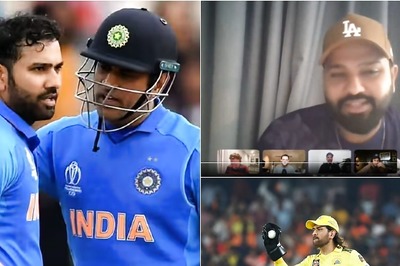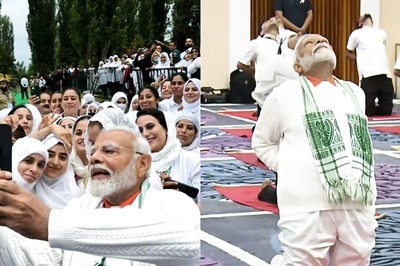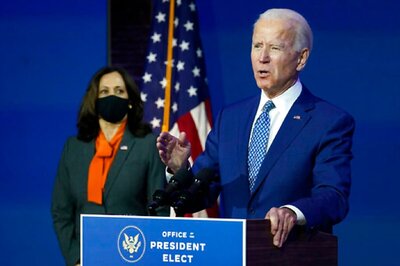
views
The dispute between Anupam Kher and the makers of Gandhi To Hitler has now gotten murkier.
To counter the legal course taken by the film's producers to recover the signing amount paid to him after he backed out of the project, the actor has approached the CINTAA (Cinema and Television Artistes' Association) for a resolution, apparently claiming the makers (Anil Kumar Sharma and Anil Singh) are using him for publicity.
Raza Murad, chairperson of the joint dispute settlement committee, CINTAA, comes out openly in favour of Anupam: "In my 25 years with CINTAA, we've never received any complaint against Anupam Kher.
He is one of our most professional actors. Why didn't the makers of this film (Gandhi To Hitler) approach us earlier? Why didn't they complain when Anupam backed out?"
With regard to the issue of the signing amount, Murad says, "There's generally a mutual understanding between the actor and producer on this matter.
In this case, too, maybe there was an understanding that the signing amount would be adjusted for whatever preparation Anupam had undertaken for the role.
How else can you explain why the producers didn't ask him to return the money when he backed out?"
He makes it clear that using artistes' names negatively to promote a film would not be tolerated. "It's a small industry; there are no permanent friends or enemies here.
We don't approve of this kind of character assassination of an artiste just for publicity. We're here to protect our artistes, but if they are in the wrong we won't hesitate pulling them up," he says.
Question of ethics
Should actors return or keep the signing amount given to them in good faith by filmmakers once they opt of their movies for whatever reason? The industry seems divided on the issue.
Unlike Murad, who seems to be backing Kher's decision not to return the signing amount, some in the industry think such acts by stars is unfair. Maybe it's time for some strict guidelines on this issue given that it has been coming up time and again, creating rifts within the industry.
'No actor ever returns any money'
Should actors return the signing amount if they walk out of a project? Film makers react
Rakesh Roshan: Yes. But if the actor has blocked dates and the project is dropped a month before schedule as a result of which the actor's dates go to waste, then the producer and actor would have to settle the matter according to the terms of the agreement.
Subhash Ghai: Ethically, yes. If he/she has not spent a reasonable amount of time on the project development, he should not swallow up the money that rightfully belongs to the producer.
Vikram Bhatt: Most definitely. The entertainment industry has followed a simple rule: If an actor or a technician has been hired by a producer for a project which for some reason is called off, then the actor or technician has the excuse of being morally within his right not to return the signing amount. But if an actor or technician walks out of a project, then he/she must return the money immediately.
Sanjay Gupta: Most certainly! A signing amount is a token payment made in good faith where both parties agree to work together. If it doesn't materialise, then the artiste is liable to return the advance money.
Sheetal Talwar: Yes. The monies are legally under a work-for-pay contract. If the workdays are not utilised, the payment should be returned. And I think most responsible actors do so.
Pritish Nandy: If a project doesn't happen, the actor must most definitely return the signing amount. No question about it.
Madhu Mantena: It's basically a questions of ethics involving two people, the producer and the actor. I wouldn't want to spoil my relations with any actor by asking back for a token amount of money. But yes,technically if a project doesn't take off the signing amount should be returned.
Vipul Shah: No actor ever returns any money.




















Comments
0 comment